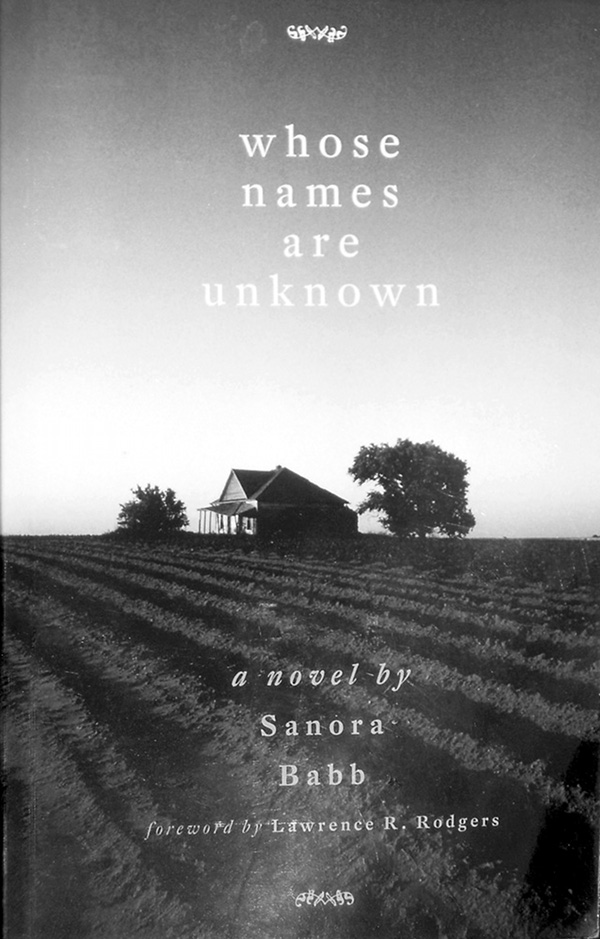A Book Review

Sanora Babb offered this explanation for the title of her novel, Whose Names Are Unknown. “The title of this book is taken from a legal eviction notice: To John Doe and Mary Doe Whose Names Are Unknown. The time is the 1930’s, the time of the Great Depression and the dust bowl disaster.”
Today we are faced with a world on the brink of financial collapse and unprecedented natural disasters. This book should serve as a dire warning and a call to action.
Historians have called the dust storms that swept over the southern plains of Oklahoma, Colorado, Kansas, and Texas “the most severe environmental catastrophe” in American history. This book dramatizes the human side of this ecological nightmare by focusing on the struggles of several families, including such day-to-day activities as how to get groceries, help needy neighbors, and get work – as well as the more life-threatening crises they endured, such as failed pregnancies, suicides, dust storms, and labor violence.
The book tells how over 250,000 small farmers were dispossessed and forced to set out on the highways in search of work in California, where they worked as migrant farmworkers. Paid nearly nothing, starving, and hounded by hired thugs, they were forced to get organized and strike for higher wages.
The author, Sanora Babb, had lived and worked among these people. Born in Oklahoma in 1907, her family moved around a lot trying to survive. She became a writer and a revolutionary. Later she worked as a volunteer in the labor camps set up by the Farm Security Administration in the San Joaquin and Imperial valleys of California. She kept a diary and began to write this novel. But her boss, Tom Collins, showed John Steinbeck her writings, and Steinbeck hurried to write his famous book, Grapes of Wrath, which was published in 1939, just before she submitted her book to Random House. As a result, her book was not published until 2004.
Hopefully, Whose Names Are Unknown, will serve as an inspiration to the young writers of today’s generation of dispossessed workers, who by telling their stories, will help uplift their class to build a better world. We must struggle to insure that their works are not suppressed and hidden for generations – like this great book was.
Whose Names are Unknown is a revolutionary book, beautifully portraying the courage of the workers, even though their desperate strike was broken. We must embrace the book’s vision that the dispossessed will lead us into a bright future, “South to north the valleys curved in a long green flowering bowl, filled with food enough for a nation, while hunger gnawed these workers’ bodies and drained their minds. AN old belief fell away like a withered leaf. Their dreams thudded down like the over-ripe pears they had walked on, too long waiting on the stem. One thing was left, as clear and perfect as a drop of rain – the desperate need to stand together as one man. They would rise and fall and, in their falling, rise again.”
